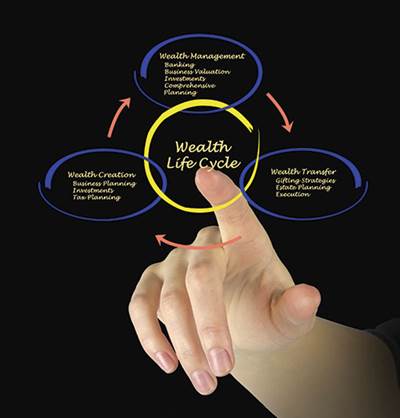Protecting the Multi-Family Business
Not having any plan at all for passing on the family business is a poor plan.
Planning to pass the family business on to the next generation is a challenge for any business owner, but it can be even more complicated when the business owner has multiple families. For example, the owner has children, but also a second spouse and perhaps even stepchildren.
An internal family buy/sell agreement can help avoid catastrophes that might otherwise occur as a result of such an owner’s unexpected death. Assuming that the surviving spouse does not want the business and/or he or she is not in a position to run it, the owner should implement such a buy/sell agreement with stipulations designed to protect the business and the members of the family who do want it.
Under this agreement, the business would transfer to the surviving spouse after the owner’s death. Upon this triggering mechanism, the children would then be obligated to buy the business from the surviving spouse, and the surviving spouse would be obligated to sell the business to the children.
A benefit for the surviving spouse: Under Internal Revenue Code (IRC) 1014(a) (basis of property acquired from a decedent), the beneficiary (the spouse) of an asset (the business) received at the death of an owner gets a full step up in cost basis, meaning no gain or loss is recognized on the transfer of this asset, thus all capital gains taxes on the sale of the business are eliminated. In this scenario, the owner’s children end up with the business, and the surviving spouse ends up with the cash.
The cash the owner’s children will need to buy out the spouse can come from life insurance. Prior to the owner’s death, the children in the business would purchase a life insurance policy on his or her life. Upon the owner’s death, the children would receive the insurance proceeds, free of income, capital gains, estate and alternative minimum taxes. The type of insurance that is purchased is up to the family.
Term life insurance works well if the business owner wishes to retire and transfer the business to the children within the next few years of its purchase, at which time the policy can be canceled. Cash value insurance tends to work better if there is no predetermined date of retirement, and the policy’s cash value can be used by the children to purchase a portion of the business. This also provides additional assets upon which the parents can retire.
To add an element of asset protection, the business owner can create a trust (not a living trust) and make gifts to the trust on behalf of the children. The children (the trustees) can then use the trust to acquire an insurance policy on the owner’s life, and the trust would make all premium payments. Upon the owner’s death, the trust would receive the death benefit and use it to purchase the business from the surviving spouse, rather than the children themselves purchasing the business. The business would then be owned by the trust, and the children could pay themselves salaries. Additionally, this would protect the business in the event that one of the children is sued for any reason or enters into a divorce battle with a spouse. The business itself could not be part of any lawsuit or judgment, because the child would not actually own it. Also, because the business would not be part of the child’s estate, it would not be subject to estate taxes upon his or her death.
Not having a succession plan is a poor plan. It’s one that ends up allowing others to make your choices for you—whether or not those choices are in line with your goals and desires.
Related Content
Think Safety: Eliminate Hazards Throughout the Shop
The tooling community is taking advantage of new products for safer mold shops and molding facilities.
Read MoreTop 10 Topics to Cover During an ISO 9001 Manufacturing Audit
Take a look at this practical hands-on approach to conducting a quality audit.
Read MoreSteps for Determining Better Mold Prices
Improving your mold pricing requires a deeper understanding of your business.
Read MoreTackling a Mold Designer Shortage
Survey findings reveal a shortage of skilled mold designers and engineers in the moldmaking community, calling for intervention through educational programs and exploration of training alternatives while seeking input from those who have addressed the issue successfully.
Read MoreRead Next
Business Succession Planning Protects Shop in the Long-Term
How family-owned businesses can secure their success for future generations.
Read MoreEstate Planning is Not Just about Taxes
These considerations can help you maximize the amount of wealth you will be able to pass on to your heirs.
Read MoreInsurance: The Forgotten Asset
One source of business capital that business owners often overlook is life insurance.
Read More



















